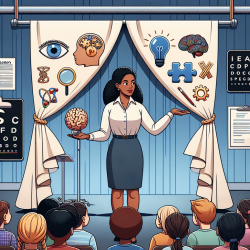In the realm of special education, understanding the nuances of assessments and diagnoses is crucial for educators, therapists, and administrators. Navigating through the Individuals with Disabilities Education Act (IDEA) and aligning with the American Speech-Language-Hearing Association (ASHA) guidelines can sometimes feel overwhelming. This blog aims to clarify some of the most pressing questions surrounding school screenings and assessments, offering valuable insights for those dedicated to providing the best educational experiences for students with special needs.
Parental Consent for Screenings
According to IDEA, parental consent is not required before administering screenings that are applied across the entire student population. Screenings are not considered evaluations under IDEA to determine eligibility for special education services, and therefore, do not require parental consent.
Using the Most Recent Version of a Test
ASHA does not have a formal policy on using the most recent version of a test. However, best practices indicate that using the latest version is advisable. Here are some reasons to use the most current version of an assessment:
- It may be impossible to order test forms for an older version, and photocopying manuals and test protocols is not permitted.
- Prevent questions regarding the use of outdated assessments in the event of a special education dispute.
- Subtest questions and responses may have changed.
- Raw scores and standardized scores may have been revised.
- Changes to test administration and scoring may have been made.
If your school cannot provide the most recent version, consider borrowing from a neighboring district or university. If that’s not possible, non-standardized measures can be used, provided they are validated for the assessment's purpose.
Re-administering Standardized Tests
The frequency of re-administering standardized tests varies according to the specific test. Some guidelines include:
- Ensuring the student is in the next norm group.
- Ensuring the student no longer remembers the test questions.
- Ensuring the student appears to have made progress.
If the publisher offers no guidance, clinical judgment should be used, allowing 6–12 months between administrations. Consider the school's testing schedule and avoid high-stakes testing periods.
Components of an Evaluation According to IDEA 2004
IDEA 2004 specifies that public agencies should:
- Use a variety of assessment tools and strategies to gather relevant information about the child.
- Not use any single measure or assessment as the sole criterion for determining eligibility and appropriate educational programs.
- Use technically sound instruments that assess cognitive, behavioral, physical, and developmental factors.
SLP's Role in Diagnosing Disorders
Childhood Apraxia of Speech (CAS): Certified SLPs are responsible for diagnosing CAS and designing individualized treatment programs. This requires specialized knowledge in motor learning theory and differential diagnosis of childhood motor speech disorders.
Autism Spectrum Disorder (ASD): SLPs play a central role in the screening, assessment, diagnosis, and treatment of ASD. They are key members of an interdisciplinary team, including the child’s pediatrician and developmental pediatrician.
Dyslexia: SLPs play a critical role in literacy development and assessment for children with communication disorders. Their scope of practice includes literacy intervention for children and adolescents.
Understanding these guidelines and best practices ensures that educators and therapists can provide accurate and effective assessments and interventions for their students. For more information, please follow this link.










